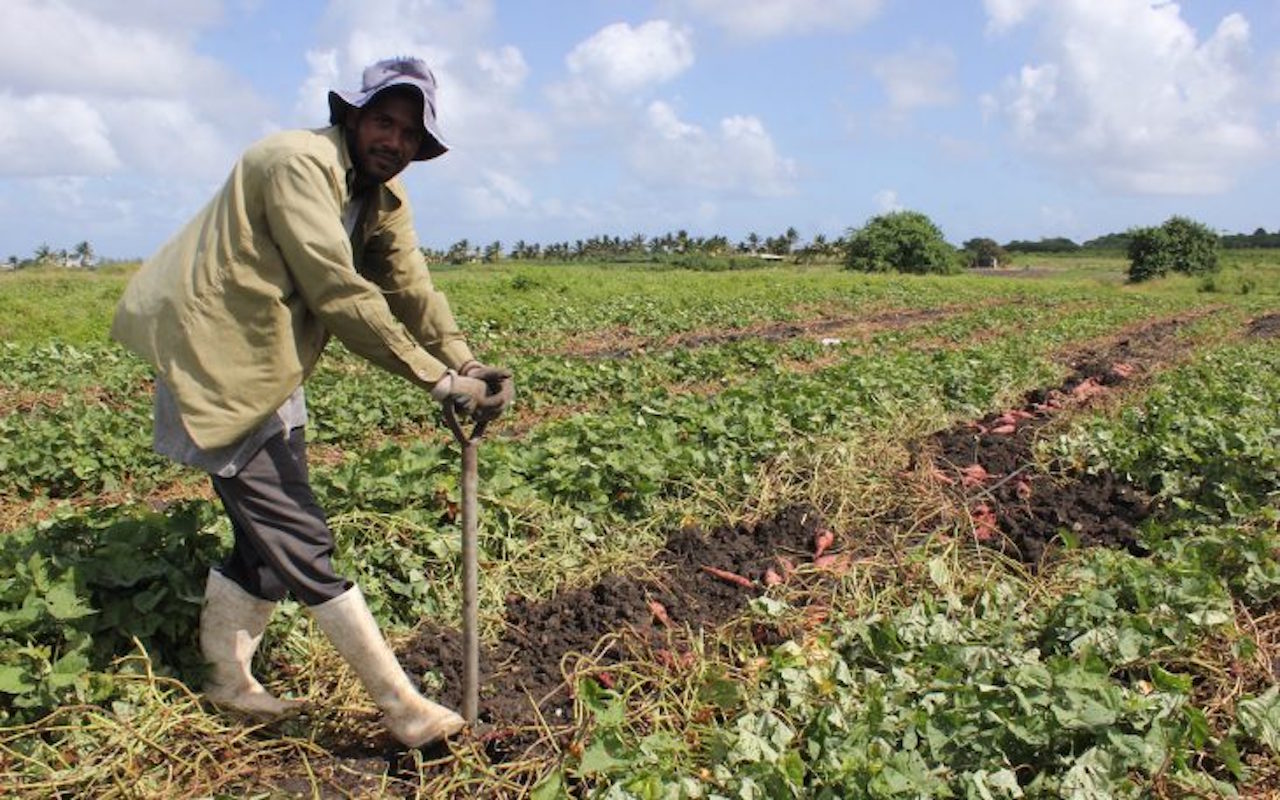Disclaimer: The views and opinions expressed by the author(s) do not represent the official position of Barbados TODAY.
By Anthony Wood
From the well of Parliament during the Estimates debate this year, Frederick Inniss, Acting Chief Executive Officer of the Barbados Agricultural Development and Marketing Corporation (BADMC), revealed that over 800 people were trained in the Farmers Empowerment and Enfranchisement Drive (FEED) programme. Of these farmers, only 252 farmers (31.5 per cent) were placed on 345 acres of land. Inniss also noted that the programme faces two major constraints: access to water and arable land for agriculture.
The FEED programme was originally designed for 150 well-trained, focused, full-time farmers. These farmers were to be placed on appropriately sized economic plots of approximately five acres and given the requisite training, ongoing technical assistance, and marketing support to ensure sustainable livelihoods. The land availability for the FEED programme was 1 182 acres, about 40 per cent of which was not suitable for agricultural purposes.
Prior to its commencement in May 2019, the Cabinet ill-advisedly scaled up the FEED programme to cater to 2 000 farmers. The training for these farmers was to be undertaken in two annual rotations of 1 000 people. In effect, what was forced on BADMC was a project destined to fail from the outset.
The expectation of failure of the FEED programme has been realised after almost four and a half years. The Minister of Agriculture, Food and Nutritional Security, Indar Weir, reported recently that 1 400 farmers have received training in the FEED programme, with just over 400 (28.6 per cent) allocated land. Important information not revealed is the number (and percentage) of the 400 farmers allocated land who are not engaged in production.
It is most unfortunate that the emphasis in the FEED programme seems to be on the number of persons trained rather than on agricultural production and the sustainable livelihood of farmers. Commonsense dictates that a correspondence should exist between the training of farmers and their placement on appropriately-sized plots for successful agriculture ventures. With less than 30 per cent of trained farmers being allocated plots of less than optimal size, some of whom are no longer engaged in production, the FEED programme has not fulfilled its most basic purpose.
The farmers in the FEED programme also experience problems of limited accessibility to water and insufficient marketing support from the BADMC. The unwise decision to increase the water rate from 66 cents per cubic meter to $1.80 per cubic meter (an increase of 172.72 per cent) for farmers in the BADMC irrigation districts adds further hardship and frustration for the farmers. This increase means that a farmer who paid $500.00 per month for water is faced with a bill of $1 363.50, an increase of $863.50 monthly, after the massive rate hike. Similarly, a farmer paying $1 000 per month for water will now pay $2 727, a monthly increase of $1 727, after the rate adjustment.
It is most unfortunate that the FEED programme, a potential signature agricultural project of the Barbados Labour Party, has been constrained to failure through its redesign and misplaced focus on training rather than agricultural production and the sustainable livelihood of farmers.
A re-evaluation of the FEED programme needs to be undertaken urgently with a view to giving it a meaningful purpose in the context of agricultural development policy in the country. The obvious weaknesses in the programme should be addressed with alacrity. Given that the FEED programme remains vital to Barbados’ food security drive, it is incumbent on the Mottley administration to treat the programme with more seriousness.
Anthony Wood is a senior economist, former Cabinet minister in the Owen Arthur administration and former lecturer in economics, banking and finance at the University of the West Indies at Cave Hill.





